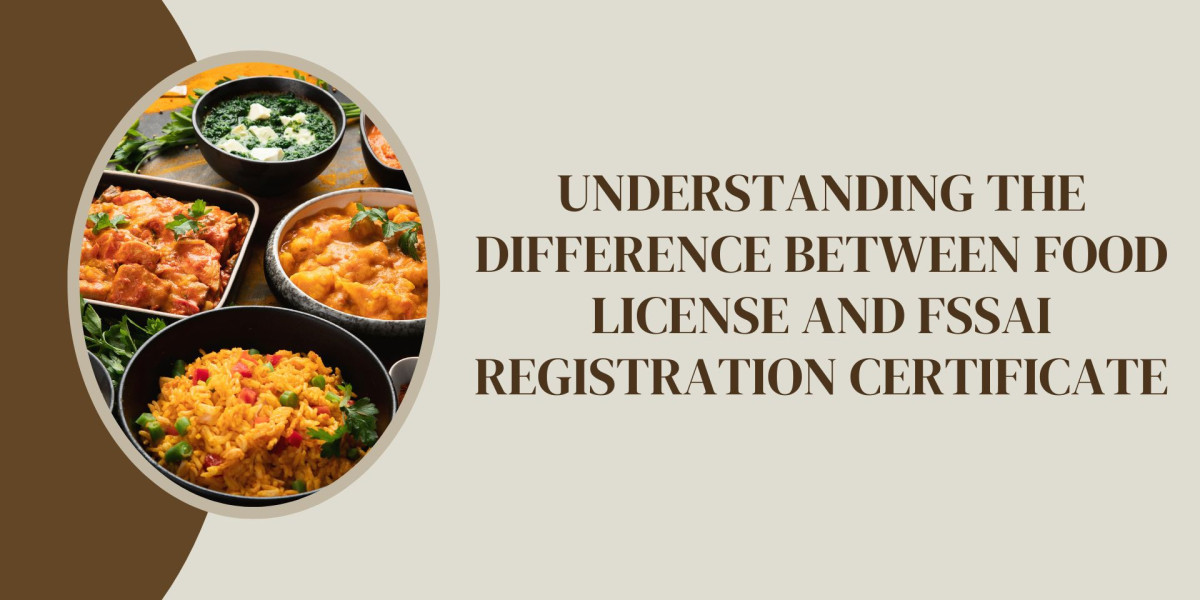In the vast and intricate landscape of the food industry, compliance with regulations is not merely a formality; it's a cornerstone of trust and safety. Among the myriad of regulatory requirements, two critical documents often come into focus: the Food License and the FSSAI Registration Certificate. While they may seem interchangeable at first glance, understanding their nuances is crucial for businesses to ensure full compliance and consumer confidence.
Unraveling the Basics: What Are They?
Food License:
- The Food License, also known as the Food Safety and Standards (FSS) License, is a mandatory document required for food business operators (FBOs) who exceed certain turnover thresholds or engage in specific food activities.
- It is issued by the Food Safety and Standards Authority of India (FSSAI), the apex regulatory body governing food safety and standards in India.
- The Food License is categorized into three types: State License, Central License, and Registration.
- The type of license required depends on factors such as the scale of operation, turnover, and nature of food business activities.
FSSAI Registration Certificate:
- The FSSAI Registration Certificate is a basic registration document required for small-scale food businesses.
- It is issued by the Food Safety and Standards Authority of India (FSSAI) to food business operators (FBOs) that have a turnover below a specified threshold or are engaged in certain low-risk food activities.
- FSSAI Registration is primarily aimed at ensuring the safety and quality of food products offered by small-scale FBOs.
Deciphering the Differences: Key Distinctions
Applicability:
- The primary difference lies in their applicability based on the scale and nature of the food business.
- Food License is required for medium to large-scale FBOs, while FSSAI Registration is mandated for small-scale FBOs.
Criteria for Issuance:
- Food License is issued based on turnover thresholds and the nature of food business activities, with State and Central Licenses catering to different scales of operations.
- FSSAI Registration is granted to FBOs with turnover below the prescribed limit or those engaged in specific low-risk food activities.
Scope of Operations:
- Food License allows FBOs to engage in a broader spectrum of food activities, including manufacturing, processing, packaging, labeling, storage, distribution, and sale.
- FSSAI Registration is typically limited to certain low-risk food businesses, such as small-scale manufacturers, retailers, and distributors.
Renewal Requirements:
- Both the Food License and FSSAI Registration require periodic renewal to ensure ongoing compliance with regulatory standards.
- The renewal process may vary based on the type of license or registration and any updates in regulatory requirements.
The Significance of Compliance: Ensuring Food Safety and Consumer Trust
Regulatory Compliance:
- Compliance with FSSAI regulations, whether through Food License or FSSAI Registration, is imperative for maintaining food safety standards and legal obligations.
Consumer Confidence:
- Holding valid FSSAI licenses or registrations enhances consumer confidence by signaling adherence to quality and safety standards.
Business Reputation:
- Non-compliance can lead to penalties, legal ramifications, and reputational damage, affecting business viability and growth prospects.
Market Access:
- Many retailers, distributors, and online platforms mandate FSSAI compliance for listing and selling food products, making valid licenses or registrations essential for market access.
Note: You Can Apply for Food Licence Renew Online Through FSSAI Portal
Conclusion: Navigating the Regulatory Landscape
In the intricate web of food regulations, understanding the distinction between the Food License and FSSAI Registration Certificate is crucial for food business operators. While both serve the overarching goal of ensuring food safety and quality, their applicability, criteria for issuance, and scope of operations vary significantly. By diligently adhering to regulatory requirements and obtaining the appropriate license or registration, FBOs not only comply with legal obligations but also bolster consumer trust, safeguarding the integrity of the food supply chain.



